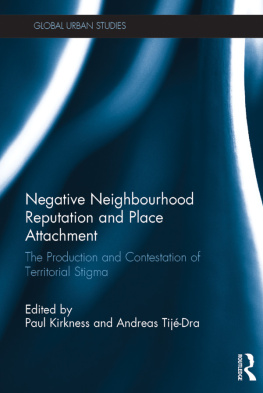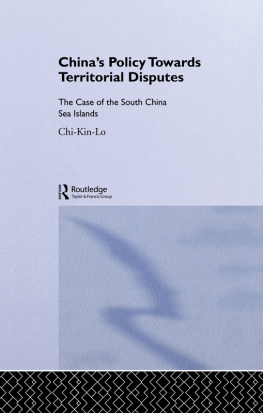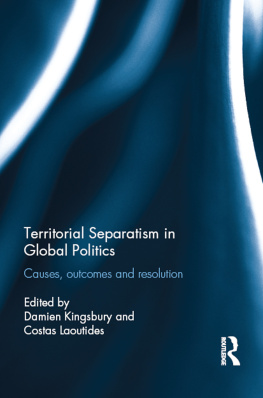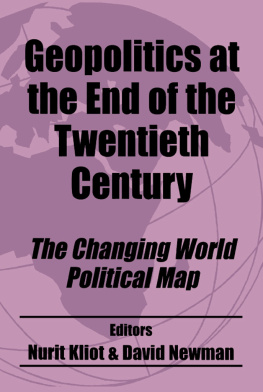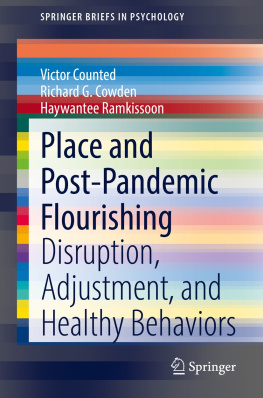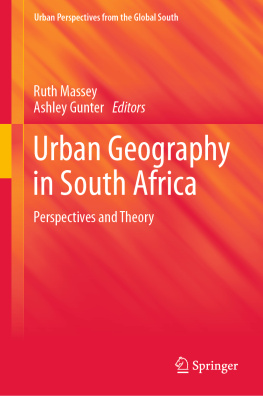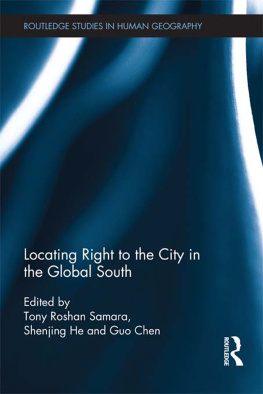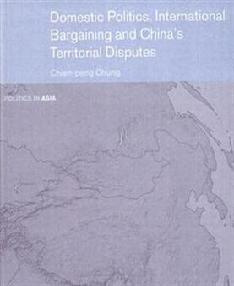
p.i
Negative Neighbourhood Reputation and Place Attachment
The concept of territorial stigma, as developed in large part by the urban sociologist Loc Wacquant, contends that certain groups of people are devalued, discredited and tainted by the reputation of the place where they reside.
This book argues that this theory is more relevant and comprehensive than others that have been used to frame and understand ostracised neighbourhoods and their populations (for example, segregation and the racialisation of place) and allows for an inclusive interpretation of the many spatial facets of marginalisation processes. Advancing conceptual understanding of how territorial stigmatisation and its components unfold materially as well as symbolically, this book presents a wide range of case studies from the Global South and Global North, including an examination of recent policy measures that have been applied to deal with the consequences of territorial stigmatisation. It introduces readers to territorial stigmatisations strategic deployment but also illustrates, in a number of regional contexts, the attachments that residents at times develop for the stigmatised places in which they live and the potential counter-forces that are developed against territorial stigmatisation by a variety of different groups.
Paul Kirkness is a Lecturer in Human Geography at the University of Erlangen-Nrnberg, Germany.
Andreas Tij-Dra is a Human Geographer at the University of Erlangen-Nrnberg, Germany.
p.ii
Global Urban Studies
Series Editor: Laura Reese
Providing cutting-edge interdisciplinary research on spatial, political, cultural and economic processes and issues in urban areas across the US and the world, volumes in this series examine the global processes that impact and unite urban areas. The organising theme of the book series is the reality that behaviour within and between cities and urban regions must be understood in a larger domestic and international context. An explicitly comparative approach to understanding urban issues and problems allows scholars and students to consider and analyse new ways in which urban areas across different societies and within the same society interact with each other and address a common set of challenges or issues. Books in the series cover topics which are common to urban areas globally, yet illustrate the similarities and differences in conditions, approaches and solutions across the world, such as environment/brownfields, sustainability, health, economic development, culture, governance and national security. In short, the Global Urban Studies book series takes an interdisciplinary approach to emergent urban issues using a global or comparative perspective.
Published:
Governing Urban Regions Through Collaboration
A View from North America
Jol Thibert
From Local Action to Global Networks: Housing the Urban Poor
Edited by Peter Herrle, Astrid Ley and Josefine Fokdal
Cities at Risk
Planning for and Recovering from Natural Disasters
Edited by Pierre Filion, Gary Sands and Mark Skidmore
Negative Neighbourhood Reputation and Place Attachment
The Production and Contestation of Territorial Stigma
Edited by Paul Kirkness and Andreas Tij-Dra
p.iii
Negative Neighbourhood
Reputation and Place
Attachment
The Production and Contestation
of Territorial Stigma
Edited by
Paul Kirkness and Andreas Tij-Dra

p.iv
First published 2017
by Routledge
2 Park Square, Milton Park, Abingdon, Oxon OX14 4RN
and by Routledge
711 Third Avenue, New York, NY 10017
Routledge is an imprint of the Taylor & Francis Group, an informa business
2017 selection and editorial matter, Paul Kirkness and Andreas Tij-Dra; individual chapters, the contributors
The right of Paul Kirkness and Andreas Tij-Dra to be identified as the authors of the editorial material, and of the authors for their individual chapters, has been asserted in accordance with sections 77 and 78 of the Copyright, Designs and Patents Act 1988.
All rights reserved. No part of this book may be reprinted or reproduced or utilised in any form or by any electronic, mechanical, or other means, now known or hereafter invented, including photocopying and recording, or in any information storage or retrieval system, without permission in writing from the publishers.
Trademark notice: Product or corporate names may be trademarks or registered trademarks, and are used only for identification and explanation without intent to infringe.
British Library Cataloguing in Publication Data
A catalogue record for this book is available from the British Library
Library of Congress Cataloging in Publication Data
A catalog record for this book has been requested
ISBN: 978-1-4724-7552-7 (hbk)
ISBN: 978-1-315-59760-7 (ebk)
Typeset in Times New Roman
by Swales & Willis Ltd, Exeter, Devon, UK
p.vii
Figures
Tables
p.viii
Box
p.ix
Adefemi Adekunle is a researcher whose focus is based around scrutinising young people on their own terms. He is Lecturer at Newman University in the Working with Children and Young People team in Birmingham. As a PhD student at UCL, he worked at the Runnymede Trust, researching the intersection of race, space, youth and identity. His present research interests are based around his work and experiences as a detached youth worker.
Kathy Arthurson is Director of Neighborhoods, Housing and Health at Flinders Research Unit, Flinders University of South Australia. Her past experiences as a senior policy analyst in a range of positions including public health, housing and urban policy are reflected in the nature of her research, which is applied research grounded in broader concepts concerning social inclusion, inequality, and social justice. She is currently completing an Australian Research Council funded Future Fellowship exploring the links between urban planning policy and health.
Everaldo Batista da Costa is Professor at the University of Braslia (Brazil) and holds a PhD in Geography (University of So Paulo, Brazil). He is currently doing postdoctoral research at the University of So Paulo and the National Autonomous University of Mexico. He is particularly interested in urban geography and explores urbanisation and patrimonialisation processes in Latin American cities.
Lee Crookes is a University Teacher in the Department of Urban Studies and Planning at the University of Sheffield. Lees PhD conceptualised the implementation of the British Labour governments Housing Market Renewal programme as a form of state-led gentrification by bulldozer and, focusing on three urban areas in the north of England, his research examined the impacts of the programme on those households whose homes were targeted for demolition. Having witnessed the harm that planning can do to people and places, Lee has been working on a collaborative research project with the Town and Country Planning Association that seeks to reconnect planning to the lives of ordinary people through the reinvention of the ideas and practice of social town planning. Working closely with marginalised communities, Lee is also committed to engaged scholarship and community-led research.
Michael Darcy is Associate Professor in Social Sciences and a member of the Urban Research Program at Western Sydney University. His research focuses on housing and social justice with a particular emphasis on deeply engaged and activist methodologies.
Next page
